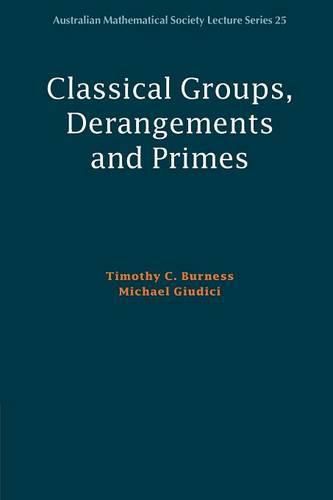Readings Newsletter
Become a Readings Member to make your shopping experience even easier.
Sign in or sign up for free!
You’re not far away from qualifying for FREE standard shipping within Australia
You’ve qualified for FREE standard shipping within Australia
The cart is loading…






A classical theorem of Jordan states that every finite transitive permutation group contains a derangement. This existence result has interesting and unexpected applications in many areas of mathematics, including graph theory, number theory and topology. Various generalisations have been studied in more recent years, with a particular focus on the existence of derangements with special properties. Written for academic researchers and postgraduate students working in related areas of algebra, this introduction to the finite classical groups features a comprehensive account of the conjugacy and geometry of elements of prime order. The development is tailored towards the study of derangements in finite primitive classical groups; the basic problem is to determine when such a group G contains a derangement of prime order r, for each prime divisor r of the degree of G. This involves a detailed analysis of the conjugacy classes and subgroup structure of the finite classical groups.
$9.00 standard shipping within Australia
FREE standard shipping within Australia for orders over $100.00
Express & International shipping calculated at checkout
A classical theorem of Jordan states that every finite transitive permutation group contains a derangement. This existence result has interesting and unexpected applications in many areas of mathematics, including graph theory, number theory and topology. Various generalisations have been studied in more recent years, with a particular focus on the existence of derangements with special properties. Written for academic researchers and postgraduate students working in related areas of algebra, this introduction to the finite classical groups features a comprehensive account of the conjugacy and geometry of elements of prime order. The development is tailored towards the study of derangements in finite primitive classical groups; the basic problem is to determine when such a group G contains a derangement of prime order r, for each prime divisor r of the degree of G. This involves a detailed analysis of the conjugacy classes and subgroup structure of the finite classical groups.